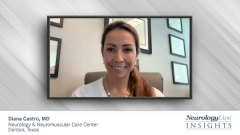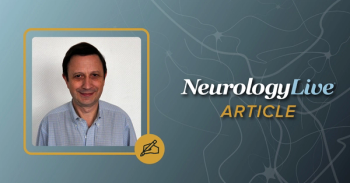
Utilizing a Multidisciplinary Team to Improve DMD Outcomes
An expert discusses how a 16-year-old postambulatory DMD patient exemplifies typical challenges including social withdrawal and increasing care needs, emphasizing the critical importance of comprehensive interdisciplinary care teams despite families' perceptions of limited treatment options.
Episodes in this series

Video content above is prompted by the following:
This segment introduces a 16-year-old patient representing the postambulatory phase of Duchenne muscular dystrophy (DMD), diagnosed at age 4 with a stop mutation in exon 9. The case illustrates typical disease progression: early steroid initiation, attention deficit/hyperactivity disorder diagnosis requiring methylphenidate, progressive wheelchair dependence by age 11, and emergence of cardiac arrhythmias and scoliosis in teenage years. The patient demonstrates classic complications including social withdrawal, increasing dependency for activities of daily living, and upper extremity weakness.
John Brandsema, MD, addresses the common family perception that neurology visits become unnecessary as the disease progresses, emphasizing that comprehensive interdisciplinary care remains crucial throughout all disease phases. The challenge of social isolation requires careful evaluation to distinguish between adaptive coping mechanisms (such as gaming communities that provide social interaction without physical limitations) and concerning signs of depression requiring intervention. Red flags include sleep disturbances, appetite changes, loss of interest in previously enjoyed activities, and any expressions of self-harm.
The multidisciplinary approach at specialized centers includes neurology-based teams with physical/occupational therapy, social work, genetic counseling, and nutrition support, plus collaborations with cardiology, pulmonology, orthopedics, gastroenterology, and palliative care specialists. This comprehensive care model addresses the complex medical needs that develop as patients age, including ongoing steroid management, bone health monitoring, and optimization of quality of life. The segment emphasizes that engagement with specialized care teams significantly improves outcomes for patients with DMD.
Newsletter
Keep your finger on the pulse of neurology—subscribe to NeurologyLive for expert interviews, new data, and breakthrough treatment updates.













